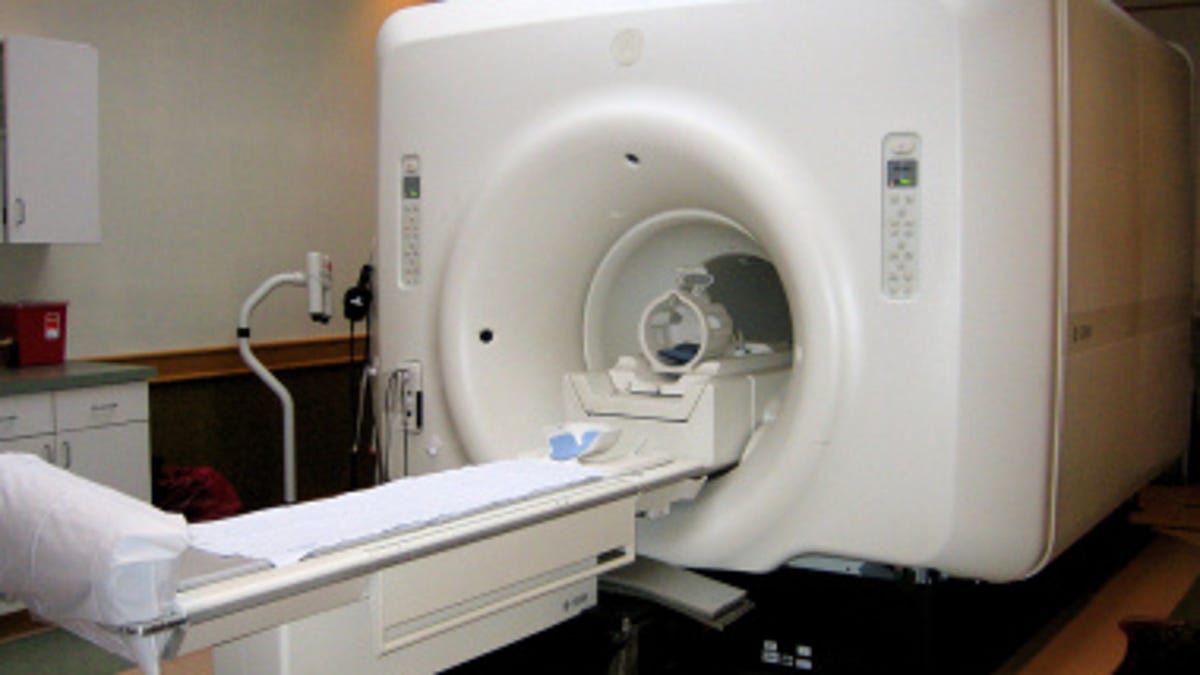Facebook and NYU want to use AI to make MRI exams faster
A new project aims to make getting an MRI scan 10 times faster.

An MRI scanner.
MRI scans may some day be available for a lot more people in need.
Facebook on Monday said it's teaming up with NYU School of Medicine's Department of Radiology to launch "fastMRI," a collaborative research project that aims to use artificial intelligence to make MRI -- magnetic resonance imaging -- 10 times faster.
Doctors and radiologists use MRI scanners to produce images that show in detail a patient's organs, blood vessels, bones, soft issues and such, which helps doctors diagnose problems. However, completing a MRI scan can take from 15 minutes to over an hour, according to Facebook's blog post. That's challenging for children and patients in a lot of pain, who can't lie still for a long time. It also limits how many scans the hospital can do in a day.
If the project succeeds, MRI scans could be completed in about five minutes, thus making time for more people in need to receive scans, according to CNN.
The idea is to actually capture less data during MRI scans, making them faster, and then use AI to "fill in views omitted from the accelerated scan," Facebook said in its blog post. The challenge is doing this without missing any important details.
Facebook Artificial Intelligence Research, or FAIR, will work with NYU medical researchers to train artificial neural networks to recognize the structures of human body. The project will use image data from 10,000 clinical cases with roughly 3 million MRIs of the knee, brain and liver. Patients' names and medical information aren't included.
"We hope one day that because of this project, MRI will be able to replace a x-rays for many applications, also leading to decreased radiation exposure to patients," said Michael Recht, MD, chair of department of radiology at NYU School of Medicine, in an email statement. "Our collaboration is one between academia and industry in which we can leverage our complementary strengths to achieve a real-world result."
Facebook didn't immediately respond to requests for comment.

